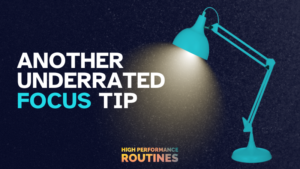
Another underrated focus tip
This is a hotel room I stayed in recently, with the desk facing away from the window.
Below you will find articles supporting the ‘Recovery’ phase of our High Performance Routines from reputable sources
Select another phase below to find relevant research papers, and tips for that phase.

This is a hotel room I stayed in recently, with the desk facing away from the window.
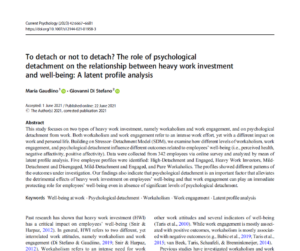
Studies demonstrate that people who have higher levels of detachment from work report better general health and wellbeing.
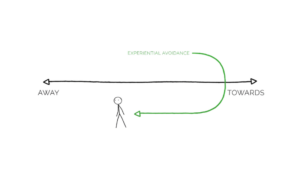
Why don’t we do the things we know we should do?
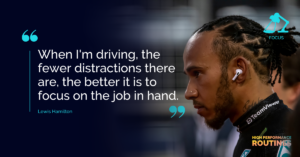
For many of us there’s a tendency to think of lack of focus and distraction as the new normal. Just another casualty of the Information Age.

How does improving focus help people?
There is plenty of evidence that focus helps performance.

Sitting in my hotel room, staring out at Niagara Falls.

A few years ago I read this Sunday Times article about how in golf, one lapse of concentration can be the difference between winning and losing.
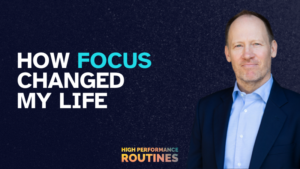
More than any of the 4 stages of a High Performance Routine, improving the Focus stage has transformed my life the most.
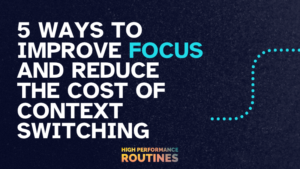
One of the reasons people feel so exhausted is they’re paying a huge cognitive cost from constant context switching.
Here are 5 ways you can reduce this cost to regain your energy.

What’s the most valuable skill in the workplace?
It turns out it’s actually *not* the art of pretending to look busy on Zoom calls.
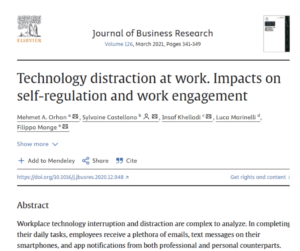
Handling multiple communications can be a source of stress, burnout, and other negative feelings and counterproductive behaviours because both work engagement is linked not only to job performance but also to positive work-related feelings
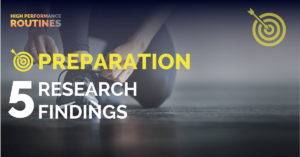
When I created the High Performance Routines framework I really wanted to explore how well supported it was by empirical research.
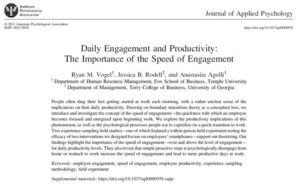
What empirical evidence exists to support the idea that preparation rituals can improve performance and engagement
One recent study gave participants two short rituals:
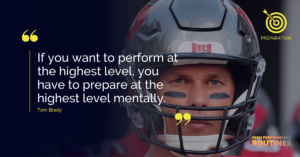
What’s the biggest difference between elite performers in sport and in business?

In 2012 the Nebraska Tourist Board came up with a slogan (h/t Gretchen Rubin) to promote the state:
“Nebraska: Honestly, it’s not for everyone”

“So how do you lift weights THAT heavy?!”
I asked incredulously to the coach of the weightlifting team I was working with, prior to the Tokyo Olympics.

When we’re busy and stressed out, it’s tough to know where to start in terms of resetting our routine.
So we’re usually looking to find some small leverage point which can have a big overall effect.
But how?

Kaavan the elephant was the star attraction of his zoo, in part because of his tendency to rock back and forth in his pen, which people used to think was dancing….
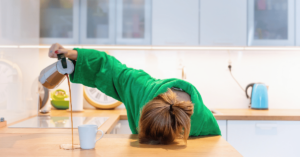
Stress isn’t new – and anyone who thinks it is has clearly never been chased around their garden by a velociraptor.
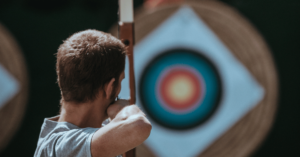
It’s a new year, and a brand new you!
But it’s the same old me, unfortunately.
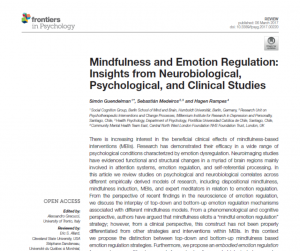
Functional MRI scans show that mindfulness meditation increases activity in brain regions associated with attention and emotional control, such as the prefrontal cortex.
Simultaneously, it decreases activity in areas linked to stress and anxiety, like the amygdala.
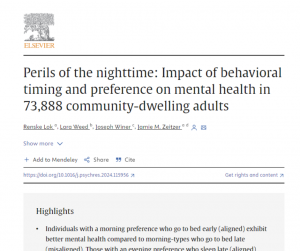
Going to bed early and rising early is associated with better mental health than going to bed late and rising late.
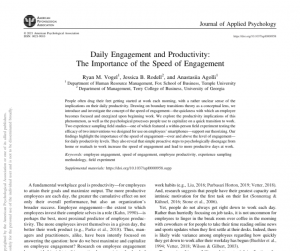
Simple preparation rituals help achieve a quicker work transition, which translates into better work engagement and performance.
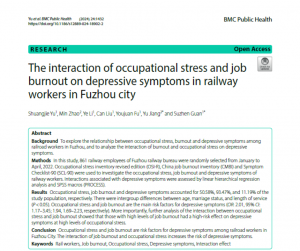
Occupational stress and job burnout are risk factors for depressive symptoms.
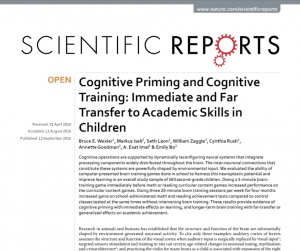
Warming up, or ‘priming’ your brain for as little as 5 minutes before a task shows immediate performance improvement, and significant lasting improvement of overall performance following a 4 month course.
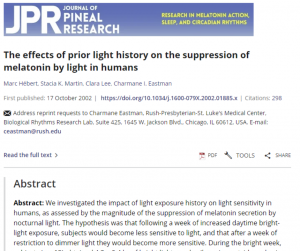
When u expose yourself to daily low light intensity, like the kind of dim lighting in most indoor environments, it significantly INCREASES MELATONIN SUPPRESSION at night if u are exposed to night time artificial lighting. The test group who got outside and was exposed to bright sunlight many times during the day did not have nearly as much melatonin suppression at night.
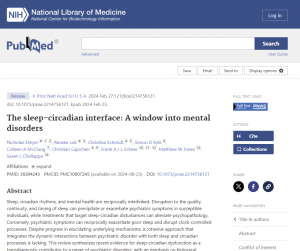
Disruptions in sleep quality, continuity, and timing can trigger or worsen psychiatric symptoms, and vice versa.
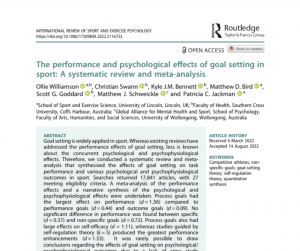
High-performing athletes consistently ask themselves one thing before practice:
What can I do to get better today?
And one thing after practice:
What did I get better at today?
This focus on the process leads to the largest boost in performance.
By using highperformanceroutines.com, you agree to our Cookie Policy.